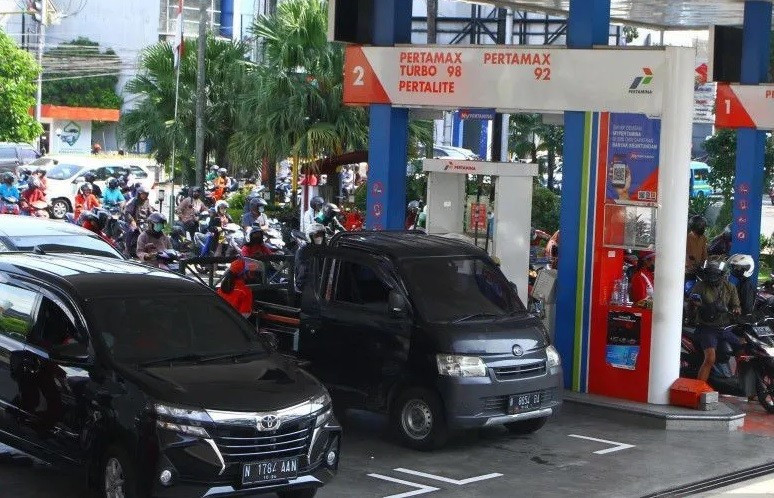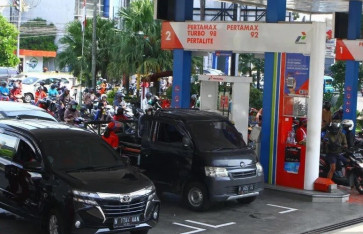Popular Reads
Top Results
Can't find what you're looking for?
View all search resultsPopular Reads
Top Results
Can't find what you're looking for?
View all search resultsAnalysis: Prabowo’s promises self-sufficiency amid energy trilemma
Change text size
Gift Premium Articles
to Anyone
P
resident Prabowo Subianto has vowed to achieve energy self-sufficiency amid ongoing geopolitical tensions while emphasizing the country's abundance of renewable energy sources to develop greener power, such as biodiesel. However, Prabowo's aim could be overoptimistic, oversimplifying the real issues in Indonesia's energy sector.
In his inauguration speech on Sunday, President Prabowo said Indonesia would be able to achieve energy self-sufficiency to maintain its sovereignty, referring to a plan outlined in his Asta Cita vision to boost production of biofuels, a blend of fossil fuel and fuels derived from agricultural biomass such as crude palm oil (CPO), cassava, corn and sugarcane. This may sound promising but in reality, the country faces the energy trilemma of energy security, affordability and sustainability.
Prabowo’s ambitious plan faces many challenges, as the country is still dependent on fossil fuels and worse, it imports the bulk of the fuel it needs to meet domestic demand. Meanwhile, Indonesia’s oil lifting has been declining for a long time, from 900,000 barrels per day (bpd) in 2000 to 576,000 bpd in the first half of 2024, or 91 percent of the government’s full-year target as set in the 2024 state budget. According to Statistics Indonesia (BPS), oil and gas imports in the January-September period, reached US$26.7 billion (Rp 417.9 trillion), slightly higher than the $25.76 billion recorded over the same period last year.
Indonesia launched its biofuel program in 2005 due to surging oil prices and aims to reduce the fiscal burden by introducing palm oil-based biodiesel. As biodiesel adoption grows, it will also absorb the country’s CPO oversupply. But critics say increasing biodiesel production will only benefit large businesses and contribute to deforestation, the issue over which the European Union has banned Indonesian biodiesel.
Between 2015 and 2023, the Oil Palm Plantation Fund Management Agency (BPDPKS) has spent a total of Rp 176.1 trillion, of which 91.3 percent was channeled to biodiesel producers as part of an incentive to offset the difference between the market prices of biodiesel and diesel. The remaining funds were used for oil palm replanting and other purposes. A study shows that the government’s mandatory B30 program, a biodiesel blend containing 30 percent palm oil, could cause a land shortage of 5.25 million hectares, meaning that the government’s B50 program to increase the palm oil content to 50 percent could lead to a land shortage of 9.29 million hectares.
Aside from biofuel development, Prabowo also mentioned using renewable energy sources like geothermal and hydropower. Home to 13 percent of active volcanoes in the world, Indonesia is the second-largest producer of geothermal energy. However, its installed capacity reaches only 11 percent of a total potential of 24,000 megawatts. Increasing installed geothermal energy capacity will not be easy, as the investment costs of geothermal plants are six to seven times higher than coal-fired power plants. At the same time, permits for geothermal plants are difficult to obtain, with construction typically starting six years after obtaining the first permit. Geothermal plants are generally located far from urban centers, making it more costly to supply power to consumers.
As for hydropower as a means to achieve energy security, the challenges include maintaining stably supply during the dry season and adverse environmental impacts. With 11 percent of electricity generated by hydropower, South Sulawesi experienced frequent power outages during a prolonged dry season in 2023. This also has occurred globally, such as in China and North America.



















